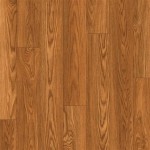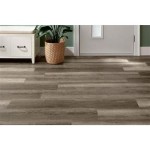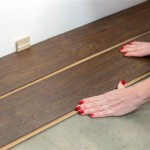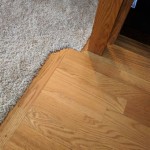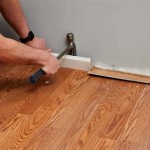Cork Flooring for Basement Stairs: A Comprehensive Guide to Essential Aspects
Transforming your basement stairs into an aesthetically pleasing and functional space can significantly enhance the overall appeal and livability of your home. Cork flooring, renowned for its durability, natural resilience, and insulating properties, has emerged as an exceptional choice for basement stair applications.
Before embarking on your cork flooring installation project, it's imperative to delve into the fundamental aspects that contribute to its effectiveness and longevity in basement settings:
Understanding Cork's Composition
Cork is a natural material derived from the bark of cork oak trees. Its unique cellular structure, featuring millions of tiny air bubbles, imparts exceptional insulating qualities, reducing noise transmission and providing a comfortable, warm surface underfoot. Additionally, cork's inherent resilience makes it highly resistant to indentation and wear, ensuring lasting durability on high-traffic stairways.
Choosing the Right Cork Type
Cork flooring is available in various formats, including tiles, planks, and rolls. For basement stairs, planks and tiles offer greater stability and ease of installation. Solid cork planks are renowned for their unmatched durability and water resistance, making them ideal for basements prone to moisture. Laminate cork tiles, composed of a cork core topped with a protective layer, provide a cost-effective option while retaining many of the benefits of solid cork.
Ensuring Proper Installation
Proper installation is crucial for maximizing the performance and longevity of your cork flooring. Basement stairs, with their unique angles and irregular surfaces, require meticulous attention to detail. Professional installation services can ensure a seamless fit, minimizing the risk of gaps or unevenness that could compromise the integrity of your flooring.
Maintaining Cork Flooring
Maintaining your cork flooring is relatively straightforward. Regular sweeping or vacuuming effectively removes dirt and debris. For deeper cleaning, use a damp mop and a pH-neutral cleaner specifically designed for cork flooring. Avoid excessive moisture as it can potentially damage the material. Re-applying a protective sealant every few years will help preserve the flooring's appearance and extend its lifespan.
Benefits of Cork Flooring for Basement Stairs
Durability: Cork's inherent resilience withstands heavy foot traffic and resists dents and scratches, making it an excellent choice for high-traffic basement stairs.
Insulation: The natural air pockets within cork provide excellent thermal and acoustic insulation, reducing noise transmission and creating a warmer, more comfortable environment.
Slip Resistance: Cork's textured surface offers enhanced slip resistance, minimizing the risk of accidents on basement stairs.
Water Resistance: Solid cork planks exhibit superior water resistance, protecting against moisture damage in damp basement environments.
Eco-Friendliness: Cork is a renewable resource, harvested without harming the cork oak trees. Its sustainability makes it an environmentally friendly flooring option for your basement.

Cork Floor Tiles Oxfordshire Kennington Flooring Parquet Rubber Basement

Cork Flooring S Examples Of Installations For Stairs Floor Installation

White Panel Cork Floor Basement Flooring Options Walls

Cork Floors Gallery Eco Friendly Flooring Stair Renovation

Basement Stairs Best Flooring Choices For Steps The Girl

White Bamboo 1 4 6mm Cork Glue Down Tile Gwb6 Icork Floor

Mocha 7 16 11mm Swiss Design Cork Floating Fmoc11 Icork Floor

Jelinek Cork Flooring Staircase Toronto By Group Houzz

Basement Stair Landing Inlay Cork Design Flooring Floor Front Elevation Designs

Sisal 1 2 Inch 12mm Cork Floating Stair Nosing 900mm Long Nsi12 Special Order Icork Floor
Related Posts

